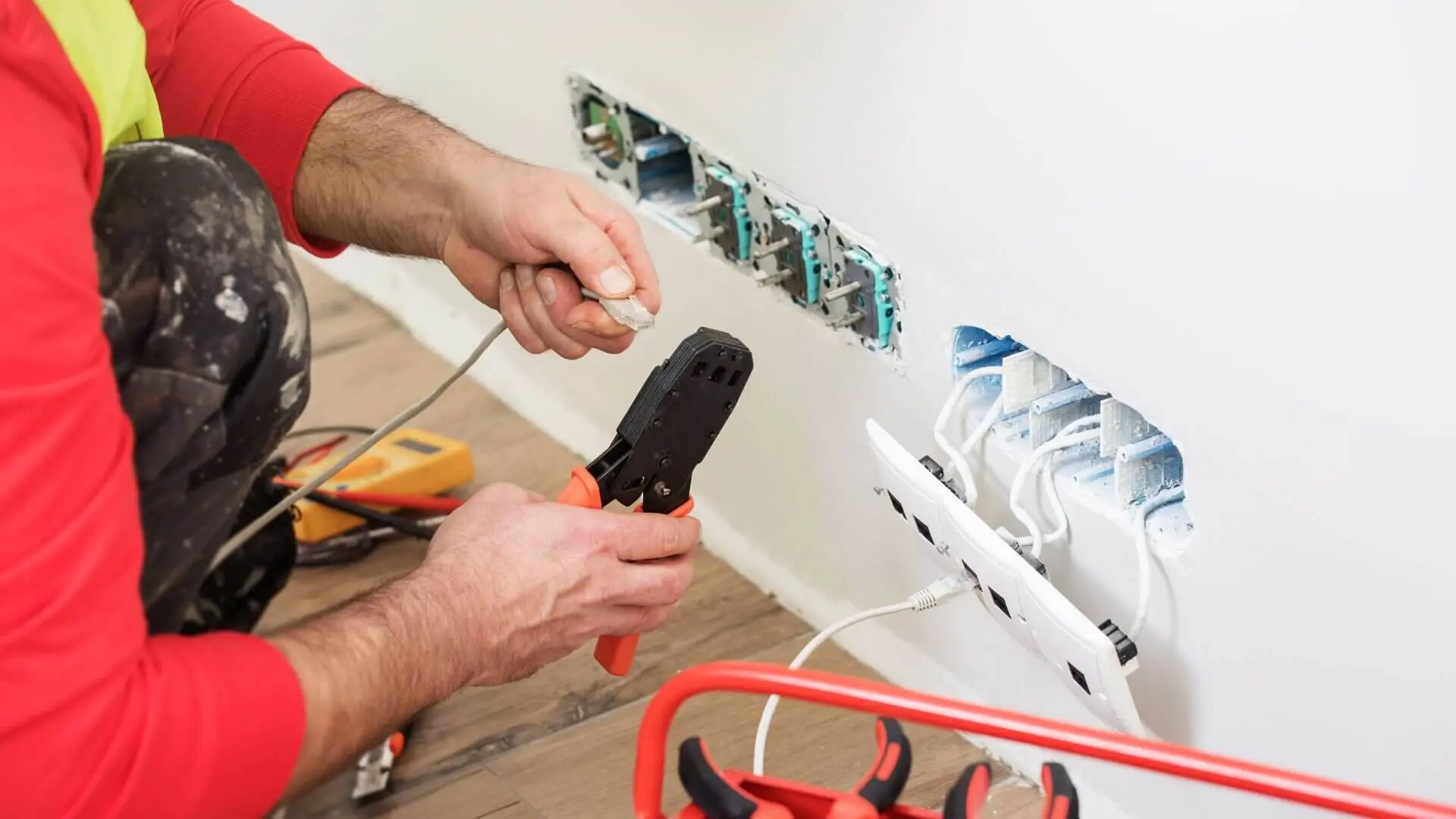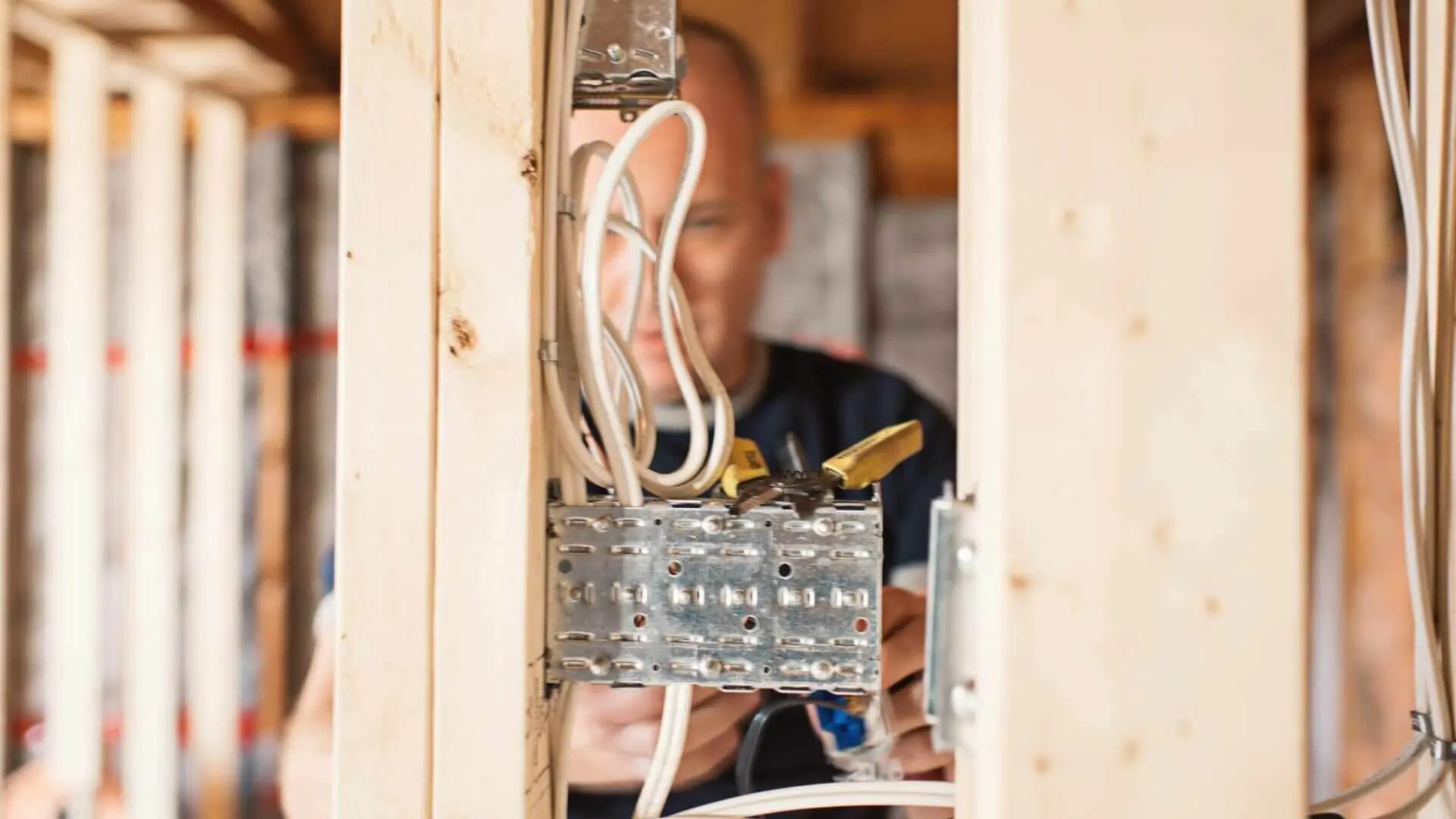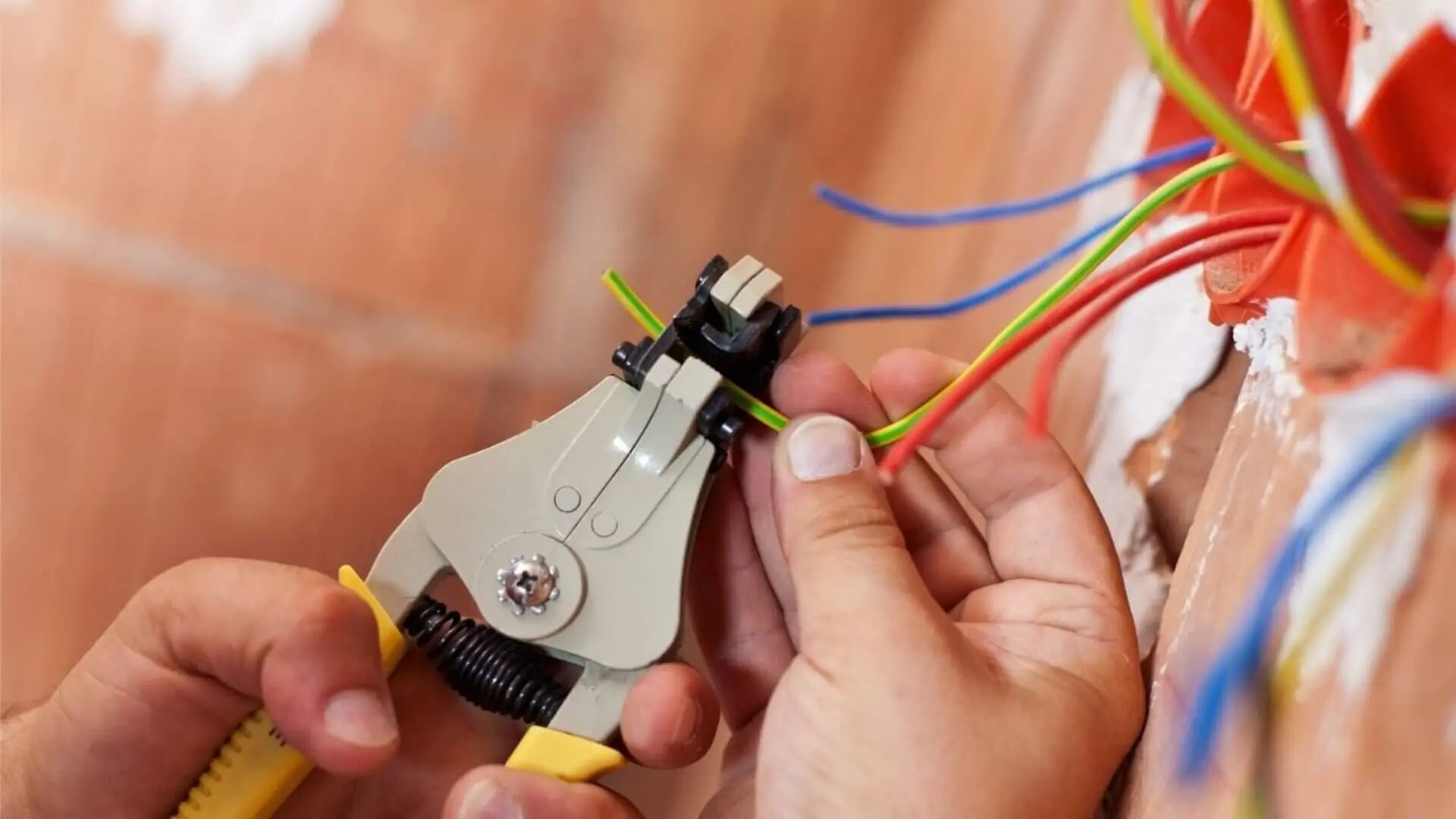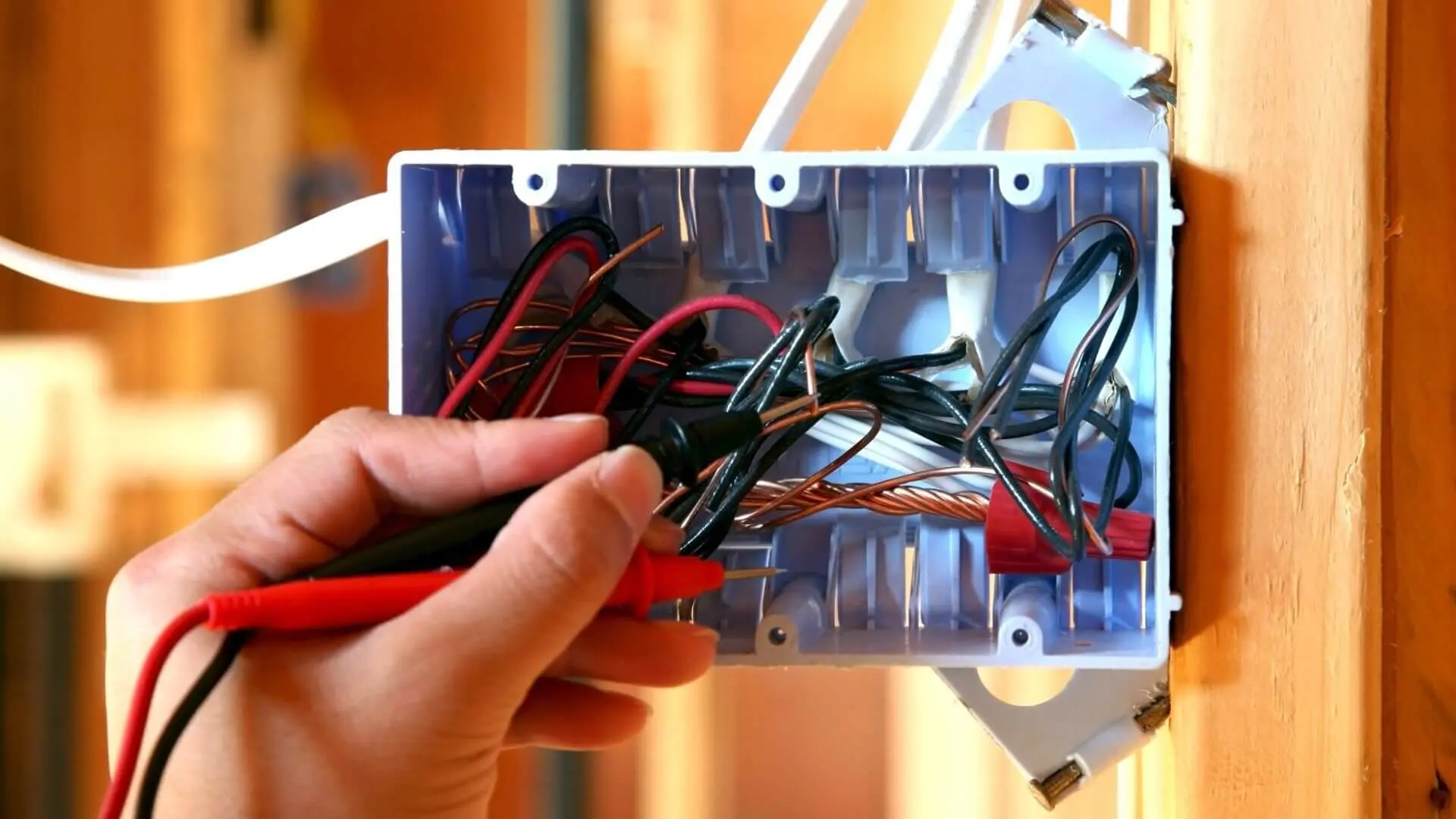At Enersol, our residential electrical services help Gold Coast homeowners understand proper residential electrical wiring - essential for your home's safety, functionality, and efficiency. A well-designed electrical system ensures a reliable power supply to all your appliances, devices, and lighting fixtures. It facilitates smooth day-to-day operations and minimises the risk of electrical hazards and fire incidents.
Electrical safety should always be a top priority for your home. Faulty wiring, outdated electrical systems, or inadequate installations can pose significant safety hazards. These hazards range from electrical shocks and electrocution to electrical fires, putting your family and property at risk.
In the following sections of this guide, we will explore different wiring systems and electrical circuits, discuss safety precautions, compliance with regulations, common problems, and the benefits of hiring professional residential electricians.
Types Of Residential Wiring Systems
Understanding each system’s characteristics, pros, and cons will help you make informed decisions about your home’s electrical setup. Let’s take a look:

Knob-and-Tube Wiring
Knob-and-tube wiring was commonly used in homes from the late 1800s to the 1940s. This system uses ceramic knobs to hold electrical wires in place and ceramic tubes to protect wires passing through walls. While knob-and-tube has proven durable over time, it lacks grounding and may require maintenance due to age and deterioration.
Aluminium Wiring
During the 1960s and 70s, aluminium wiring became popular because it was more affordable than copper. However, aluminium wiring poses some drawbacks. Its higher resistance compared to copper can lead to performance hiccups. Plus, if it’s not installed or maintained properly, there’s an increased risk of fire.
Copper Wiring
Copper wiring is the most widely used system in modern homes. Copper provides excellent conductivity for efficient power delivery. Copper wire is durable, compatible with various equipment, and safer than aluminium. However, copper is more expensive and susceptible to theft.
When selecting residential wiring, considerations include safety, reliability, and compliance with electrical codes. Consulting a qualified residential electrical service ensures proper installation and advice on the best system for your home’s needs. True connections, grounding, and maintenance are essential for safe electrical wiring and electrical equipment.
Understanding Electrical Circuits
Understanding residential wiring means getting a handle on the basics of electrical circuits. In this section, we’ll dig into the key elements of electrical circuits and why they matter when it comes to your home’s electrical setup.

Basic Concepts Of Electrical Circuits
Voltage
Voltage refers to the electrical potential difference between two points in a circuit. It represents the force that pushes electric charges through wires and components. The voltage provided by the power supply, such as the electrical grid, is responsible for powering your lights, appliances, and other electrical devices.
Current
Current is the flow of electric charge in a circuit. It is measured in amperes (A) and represents the rate electric charges move through conductors. In a closed circuit, current flows from a power source through wires and components and back to the source.
Resistance
Resistance is the opposition to the flow of electric current in a circuit. It is measured in ohms (Ω) and depends on the wires or components’ material, length, and thickness. Resistance causes a voltage drop across a component, converting electrical energy into heat or other forms of energy.
Breakdown Of Circuit Components
Circuit Breaker Panels
Circuit breaker panels, also known as distribution boards, are the central control centres for electrical circuits in a building. They house multiple circuit breakers that protect individual circuits from overloading and short circuits. Circuit breaker panels allow for the isolation of specific circuits for maintenance or repairs without interrupting power to the entire building.
Switches
Switches are devices that control the flow of electricity in a circuit. They enable you to turn lights or other electrical devices on and off. Switches can be single-pole, preventing a single circuit, or multi-pole, controlling multiple circuits simultaneously. They provide convenience and energy efficiency in residential, commercial, and industrial settings.
Outlets
Outlets, or receptacles or sockets, are points in a circuit where electrical devices can be connected. Standard outlets include power outlets, which provide electrical power for appliances, and lighting outlets, designed explicitly for lighting fixtures. Outlets are installed strategically throughout a building to accommodate the electrical needs of residents, businesses, and customers.
Safety Precautions For Home Electrical Wiring

Working with electrical wires and installations requires utmost caution. The risks, including serious injury, fire, or even death, highlight the importance of being vigilant. By sticking to safety guidelines, you protect not just yourself but also others from nasty shocks and mishaps. These precautions also help prevent damage to property from electrical faults or fires.
When installing or modifying wiring systems, it is essential to follow all local building codes and regulations. Only work on electrical wire connections if qualified, and always use caution. Inspect wires regularly for damage and shut off the power supply during maintenance to avoid shocks.
Proper grounding and earthing wires and equipment are crucial for safety. Consult an experienced electrician for advice on safe electrical installation and meeting all requirements. With electricity, taking the necessary precautions and prioritising safety must always come first.
Common Safety Hazards And How To Prevent Them
To maintain a safe electrical system in your home, it’s crucial to be aware of common safety hazards and take steps to prevent them. Here are some essential safety hazards to watch out for and preventive measures to implement:
- Faulty Wiring: Poorly installed or outdated wiring can pose a significant safety risk. Regularly inspect your electrical system and look for signs of frayed wires, loose connections, or overheating. Hire a qualified electrician to repair or replace faulty wiring to ensure safe and reliable electrical connections.
- Overloaded Circuits: Overloading circuits by connecting too many appliances or devices to a single circuit can lead to overheating, circuit damage, or electrical fires. Distribute your electrical load evenly among multiple circuits and avoid plugging too many high-power devices into a single outlet or power strip.
- Improper Use of Extension Cords: Extension cords provide temporary power but should not be used as a permanent solution. Avoid overloading extension cords; never run them under rugs or carpets where they can overheat. Opt for additional outlets or consult an electrician for a safer and more permanent solution.
- Lack of Ground Fault Circuit Interrupters (GFCIs): GFCIs are crucial safety devices that protect against electrical shocks and ground faults. Install GFCIs in moisture-prone areas, such as bathrooms, kitchens, and outdoor outlets. Regularly test GFCIs to ensure they are functioning correctly.
- Inadequate Surge Protection: Power surges can damage sensitive electronics and pose a fire hazard. Install surge protectors to safeguard your devices from sudden voltage spikes. Consider whole-house surge protection solutions for comprehensive protection.
Proper Grounding And Earthing Techniques
Grounding and earthing are crucial for the safe installation of electrical systems. Grounding provides a secure path for electrical currents to discharge into the ground. It involves connecting the neutral and ground wires to prevent dangerous voltage build-up. Earthing connects electrical systems and equipment to the earth using grounding electrodes. This protects against lightning strikes and diverts electrical currents away from structures.
Experienced electricians connect all electrical wires correctly to implement proper grounding and earthing techniques. The neutral and ground wires must be joined appropriately to ensure electrical currents safely pass into the ground. All electrical systems and components, like outlets and panels, should be grounded and earthed according to local codes. Proper connections from the electrical wires to the ground electrodes provide the path for electrical discharges.
By hiring a qualified, licensed electrician, homeowners can ensure their electrical systems are properly grounded and earthed for maximum safety. Their expertise ensures complete compliance with all requirements. Safe grounding and earthing protect against electrical faults, shocks, fires, and other hazards.
Troubleshooting Common Residential Electrical Wiring Problems
Common Residential Electrical Wiring Problems And Troubleshooting

Your home’s electrical wiring is a complex system, and it’s not unusual for issues to crop up over time. Spotting and troubleshooting common problems is crucial to keep things safe and running smoothly. In this section, we’ll share handy tips on recognising these issues and what steps to take when electrical hiccups occur at home.
Identifying Common Wiring Issues
- Flickering Lights: If you notice lights flickering or dimming, it could indicate loose connections, a faulty fixture, or an overloaded circuit. Start by checking the bulb and ensuring it is securely screwed in. If the problem persists, consult a licensed electrician to inspect the wiring and address any underlying issues.
- Tripping Circuit Breakers: When a circuit breaker trips frequently, it shows an overloaded or short circuit. Identify which appliance or combination is causing the overload and redistribute the electrical load among multiple circuits. If the problem persists, consult an electrician to assess the electrical capacity and potentially install additional circuits.
- Electrical Surges: Electrical surges can damage sensitive electronics and pose a fire risk. If you experience frequent surges, unplug electronic devices and appliances during storms or power outages. Consider installing surge protectors throughout your home to safeguard your equipment.
- Faulty Outlets or Switches: Non-functioning outlets or switches may be due to loose wiring connections or worn-out components. Before attempting any repairs, turn off the circuit breaker associated with the affected outlet or switch. Check for loose connections and ensure the wiring is securely attached. If the problem persists, consult a professional electrician for proper repairs or replacements.
Steps to Take When Encountering Electrical Problems
When facing an electrical issue, prioritise safety—turn off the power to the affected area and avoid touching exposed wires or making attempts beyond your skill. Hire a licensed electrician for complex or hazardous problems, as they have the proper knowledge and tools to identify and fix wiring safely.
Rewiring projects require qualifications and expertise, so consult a professional rather than DIY. Obtain quality materials when replacing components to ensure reliable, long-lasting electrical systems. But above all, don’t take risks - safety first by shutting off power and calling an expert electrician for anything complex or uncertain. Their experience ensures problems are adequately addressed, and future hazards are avoided.
Power Up Your Knowledge Of House Electrical Wiring
Ensuring proper residential electrical wiring is essential for your home’s safety, functionality, and efficiency. You can maintain a secure electrical setup by understanding the importance of safety, familiarising yourself with common wiring issues, and taking the necessary precautions. However, when it comes to complex electrical projects or troubleshooting, it is always best to rely on the expertise of professional residential electricians.
Enersol Electrical is a trusted and reliable residential and emergency electrician for clients in Gold Coast. With our commitment to professionalism and vast industry experience, we have built a reputation for delivering top-notch electrical services.
Our skilled electricians stay ahead of the curve, keeping up with the latest advancements to offer you fresh solutions tailored to your needs. By focusing on your satisfaction and providing cost-effective services, we help you save money while ensuring your electrical system stays safe and reliable.
Reach out to us today and tap into Enersol Electrical’s expertise and outstanding service. We are here to assist you with your electrical needs.